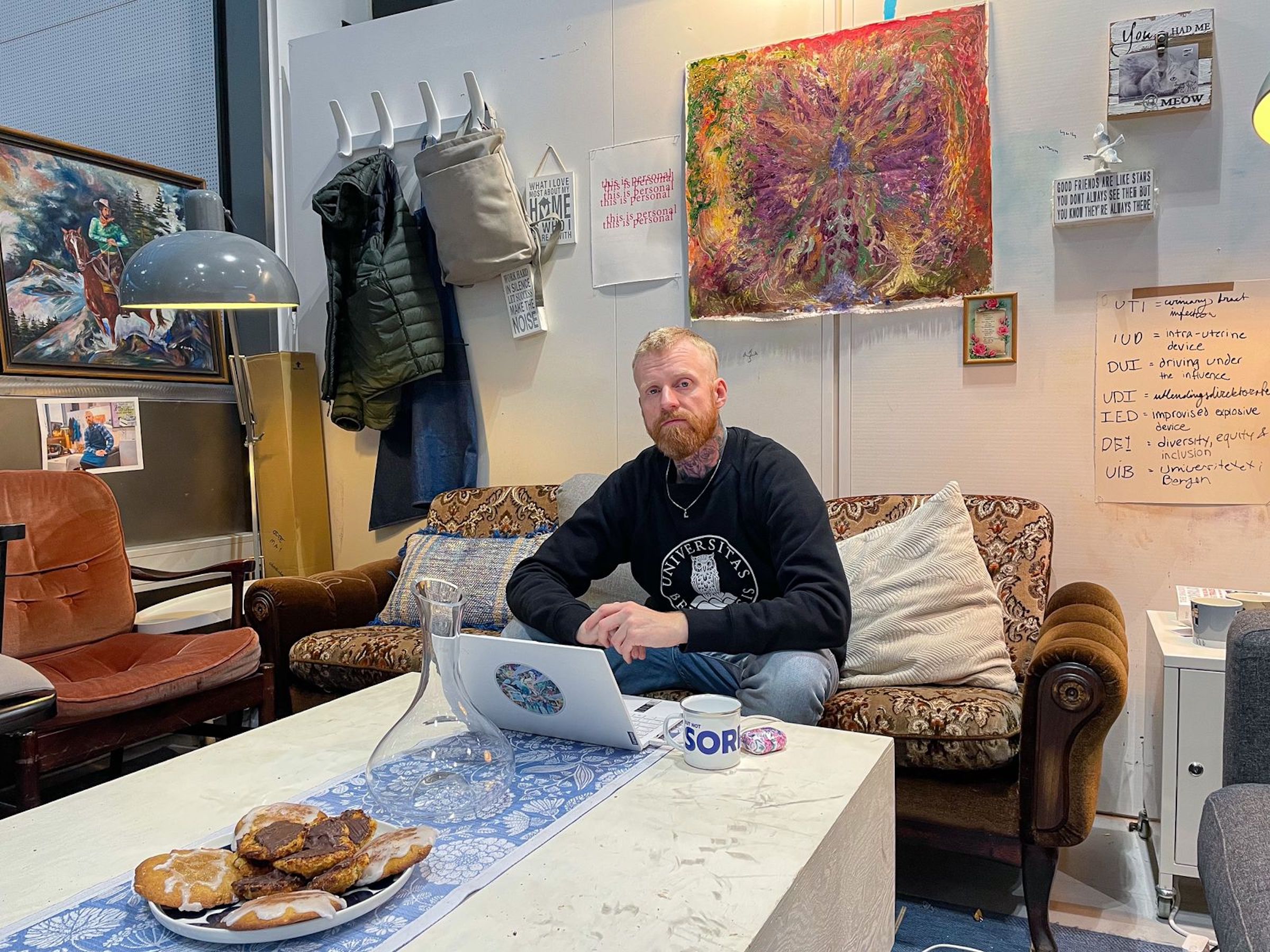A London judge sided with Icelandic fishing giant Samherji in an intellectual property lawsuit against conceptual artist Odee Friðriksson (ODEE), whose work “We’re Sorry” (2023) called attention to the company’s alleged involvement in the transnational “Fishrot” scandal. In a summary judgment released November 14, Judge Paul Richard Teverson argued that the artist’s use of Samherji’s logo and website in his work were “instruments of fraud.”
In a statement shared with Hyperallergic, Friðriksson wrote, “Art makes waves, and it has rocked the boat of my collaborators in art, Samherji.”
“Their continued efforts to amplify ‘We’re Sorry’ have ensnared them in the very critique they sought to silence, putting an even greater spotlight on their wrongdoings — not only in Namibia but also in their stance on freedom of expression and corporate responsibility,” the artist said.
The corruption scandal first came to light in 2019, when a former Samherji manager leaked documents suggesting the company had colluded with Namibian officials to secure part of the country’s fishing quota, a move that hit the local fishing industry hard. According to WikiLeaks, the fishing company paid off Namibian officials and promised to build infrastructure in the country. Samherji has denied allegations of bribery.
In 2021, the company released a “Statement and Apology From Samherji” denying that any criminal offenses were committed except by the employee who made the allegations. Samherji has not yet responded to Hyperallergic’s request for comment.

According to court documents, Friðriksson, an MFA student at the University of Bergen, linked the official web address of Samherji in the United Kingdom to a replicated version with a homepage that read “WE’RE SORRY” in May 2023. The fake website invited visitors to click on a “full press statement,” also written by Friðriksson and titled “Samherji Apologizes, Pledges Restitution and Cooperation with Authorities,” complete with an unaltered company logo. The satirical release lists a media contact for Samherji and apologizes for “corruption, bribery, and neocolonialism,” also committing to restitution and “justice” for actions that “undermined Namibia’s government.”
Samherji sued Friðriksson over his use of the brand’s intellectual property, including in the mock press release and the UK domain name. Friðriksson argued in court that as an artist, his freedom of expression under the European Convention of Human Rights outweighed Samherji’s intellectual property rights and that his work was protected under parody and pastiche laws.
Judge Teverson rejected Friðriksson’s arguments, determining that the artist intended to deceive website visitors into believing the false website was in fact authentic. Teverson wrote in his ruling that Friðriksson would not succeed in defending himself in a trial against claims of malice, fraud, and copyright infringement.

Friðriksson’s lawyer Andra Matei told Hyperallergic that a hearing will take place on December 17 to discuss “costs and other consequences,” and that Friðriksson plans to appeal the decision.
“We are up against corporations with millions and millions of dollars and legal systems that have historically not paid attention to the crucial role that artists, such as ODEE, play in the strengthening of democracies,” Matei said in a statement to Hyperallergic. “While we are disappointed, this decision has only furthered our resolve to take this fight all the way to the very end.”
Friðriksson was also behind MOM Air, a parody airline launched in 2020 complete with a booking website, flight maps, and media releases announcing absurd fees for lifejackets, toilet paper, and “COVID flights” for infected patients. On his website, Friðriksson wrote that the parody was meant to inspire the public to challenge brand authenticity and the ethics of airlines. The artist carried on with the operation for some weeks before it was busted and claimed that logistical companies had reached out to offer aircraft leases and airport slots.
“All good stories need some drama, and with this ruling, we definitely got it,” Friðriksson told Hyperallergic via email. “‘We’re Sorry’ is slowly evolving into a movement, with so many organizations, artists, and other related parties realizing the significance of what is at stake. We take freedom of expression for granted — until we criticize the wrong entities.”

